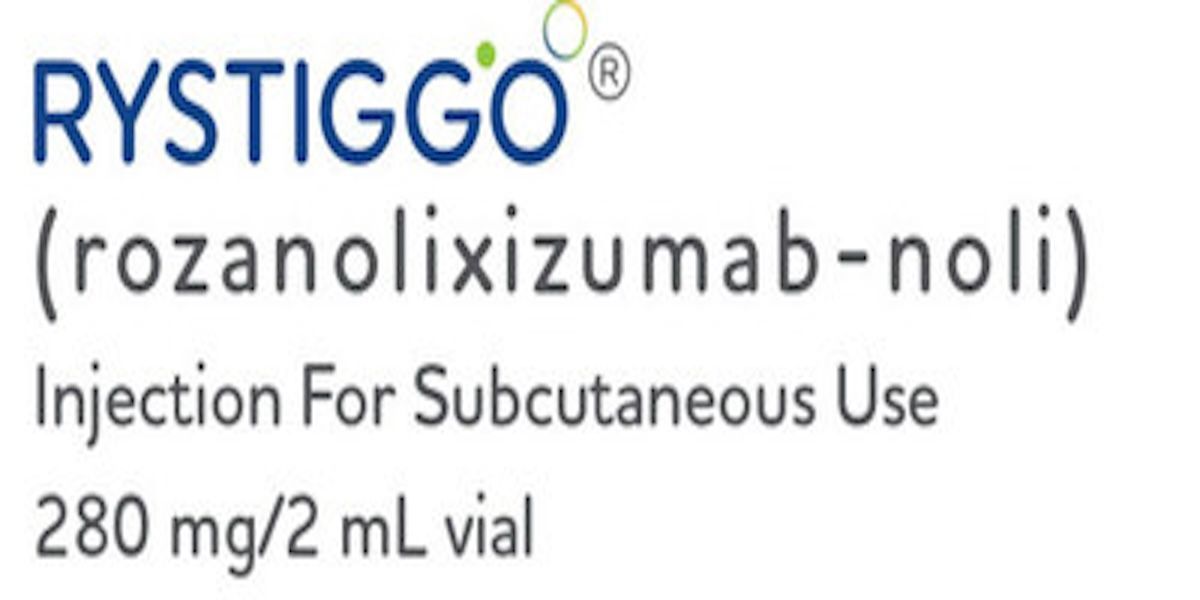- Center on Health Equity & Access
- Clinical
- Health Care Cost
- Health Care Delivery
- Insurance
- Policy
- Technology
- Value-Based Care
Rozanolixizumab for gMG Approved in Japan for Self-Administration
The approval marks the second international approval for rozanolixizumab (Rystiggo; UCB Pharma) for generalized myasthenia gravis (gMG), behind the February EU approval of 2 self-administration approvals for the neonatal Fc receptor monoclonal antibody: an infusion pump and manual push with a syringe.
On May 9, Japan’s Pharmaceuticals and Medical Devices Agency followed the European Union’s lead in approving rozanolixizumab (Rystiggo; UCB) for generalized myasthenia gravis via self-administration.1,2 Patients in the country now have the option to use a manual push or syringe pump method to administer at home the humanized anti–neonatal Fc receptor monoclonal antibody that targets immunoglobulin G.
Training from a health care professional is necessary before home self-administration can commence, UCB cautioned.
Rozanolixizumab was first approved in Japan to treat generalized myasthenia gravis in September 2023,3 when the Japanese Ministry of Health, Labour and Welfare approved it along with zilucoplan (Zilbrysq; UCB) to treat adult patients with generalized myasthenia gravis with inadequate responses to steroids or other immunosuppressants. This made Japan the first country to ever have available 2 therapies targeting generalized myasthenia gravis—but the second behind the US in approving subcutaneous rozanolixizumab for adult patients who are anti–acetylcholine receptor or anti–muscle-specific tyrosine kinase antibody positive, based on results from the phase 3 MycarinG study (NCT03971422).4
The Ministry of Health, Labour and Welfare previously designated rozanolixizumab an orphan drug in November 2020,3 echoing moves made by the FDA in February 20195 and the European Commission in April 2020.6
This is the second international approval for rozanolixizumab for gMG in recent months, behind the February EU approval of the same 2 self-administration approvals for the humanized anti–neonatal Fc receptor monoclonal antibody. | Image Credit: © UCB

This newest approval is based on updated data from the MycarinG study1—also known as MG0003—showing that Japanese patients demonstrated a statistically significant reduction from baseline in their Myasthenia Gravis Activities of Daily Living scores by day 43 following administration compared with the control group that received placebo (P < .001). The most common adverse reactions patients exhibited after receiving rozanolixizumab were headache (48.4%), diarrhea (25.0%), and pyrexia (12.5%); headache was also the most common reaction among the patients who received a placebo (19.4%). The treatment has not been studied in patients with symptoms of myasthenic crisis or those who are currently experiencing myasthenic crisis.
Another positive outcome was that headache incidence did not increase with repeated treatment.
In addition, UCB’s global Onward program will launch home delivery of rozanolixizumab through UCB Japan for both of the newly approved self-administration methods. This initiative provides one-on-one support for patients through care coordinators who help facilitate treatment access by assisting with insurance coverage and financial assistance options, treatment tracking, ongoing support, and patient empowerment.7
"For people living with gMG, unpredictable symptoms can significantly impact daily life, leading to feelings of vulnerability and loss of control. Subcutaneous self-administration can help address these challenges, providing better control over treatment schedules and enhancing autonomy and satisfaction," Donatello Crocetta, MD, MBA, chief medical officer and head of global medical affairs, UCB, said in a statement. "We are delighted to achieve this approval in Japan and the roll out of the ONWARD home delivery service, which together provide personalized support and reduce the treatment burden for those affected by gMG."
References
1. Rystiggo (rozanolixizumab) receives approval in Japan for two new administration methods as UCB begins ONWARD program for patient support. News release. UCB; May 9, 2025. Accessed May 15, 2025. https://www.ucb.com/newsroom/press-releases/article/rystiggor-rozanolixizumab-receives-approval-in-japan-for-two-new-administration-methods-as-ucb-begins-onward-program-for-patient-support
2. Meglio M. EU approves self-administration routes for rozanolixizumab for myasthenia gravis. NeurologyLive®. February 4, 2025. Accessed May 15, 2025. https://www.neurologylive.com/view/eu-approves-self-administration-routes-rozanolixizumab-myasthenia-gravis
3. Japan approval of Rystiggo (rozanolixizumab) and Zilbrysq (zilucoplan) for the treatment of adult patients with generalized myasthenia gravis. News release. UCB; September 23, 2023. Accessed May 15, 2025. https://mb.cision.com/Public/18595/3841624/975c49d806b8b479.pdf
4. Joszt L. FDA approves of rozanolixizumab-noli for generalized myasthenia gravis. News release. AJMC®. June 27, 2023. Accessed May 15, 2025. https://www.ajmc.com/view/fda-approves-rozanolixizumab-noli-for-generalized-myasthenia-gravis
5. Rozanolixizumab-noli. FDA. February 2019. Accessed May 15, 2025. https://www.accessdata.fda.gov/scripts/opdlisting/oopd/detailedIndex.cfm?cfgridkey=669918
6. Orphan designation for treatment of myasthenia gravis: rozanolixizumab. European Medicines Agency. April 22, 2020. Accessed May 15, 2025. https://www.ema.europa.eu/en/medicines/human/orphan-designations/eu-3-20-2272
7. Onward: Rystiggo (rozanolixizumab-noli). UCB. Updated 2023. Accessed May 15, 2025. https://www.ucbonward.com/RYSTIGGO/ONWARD/ONWARD-and-you
